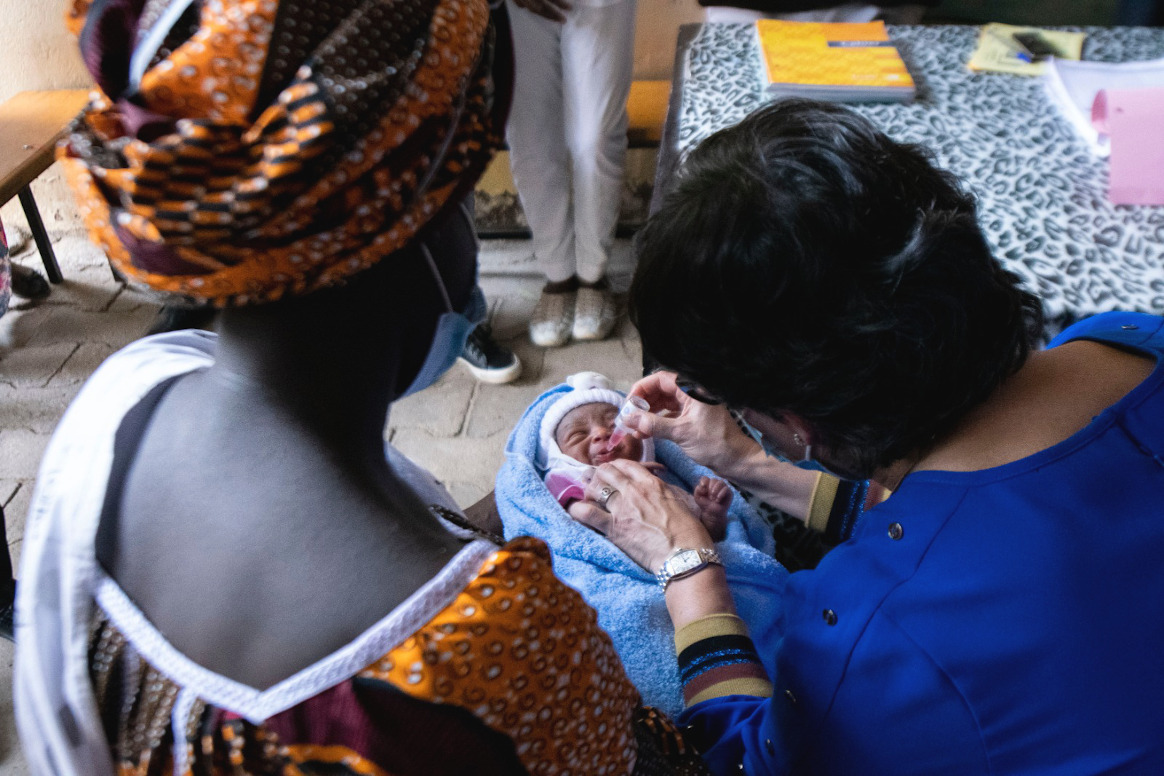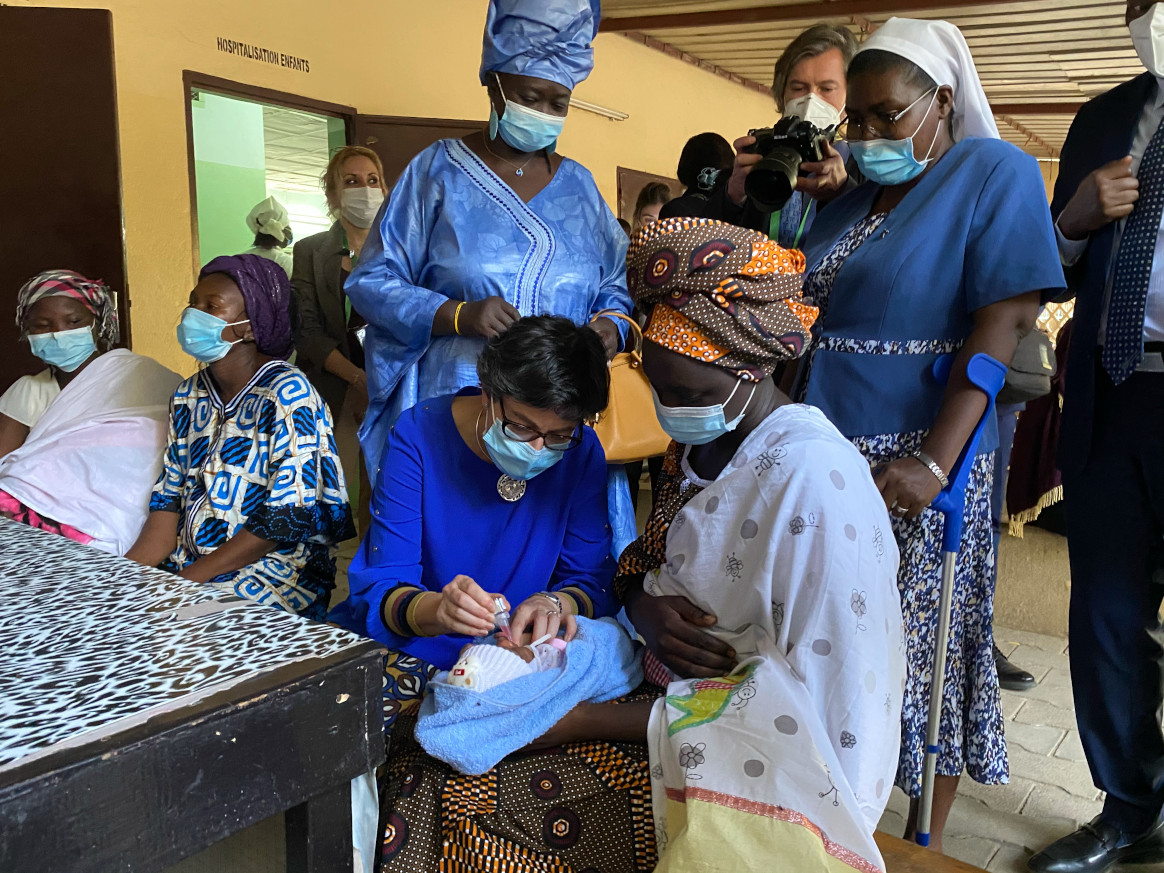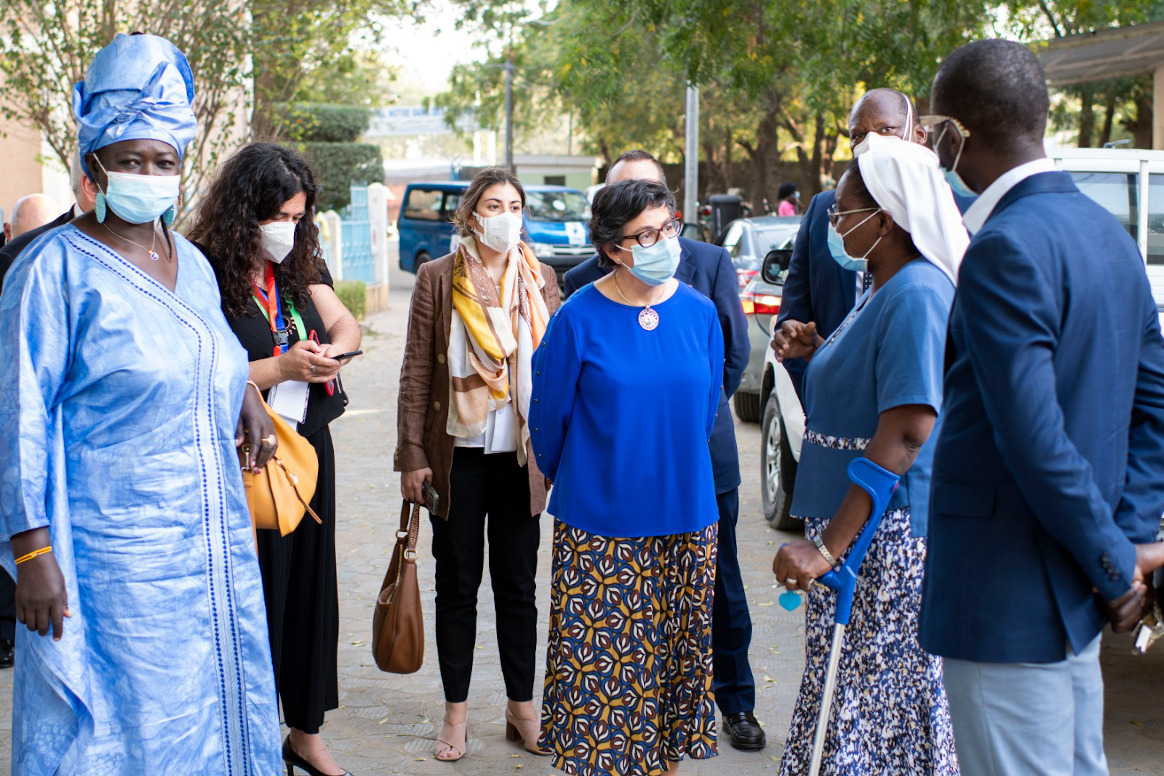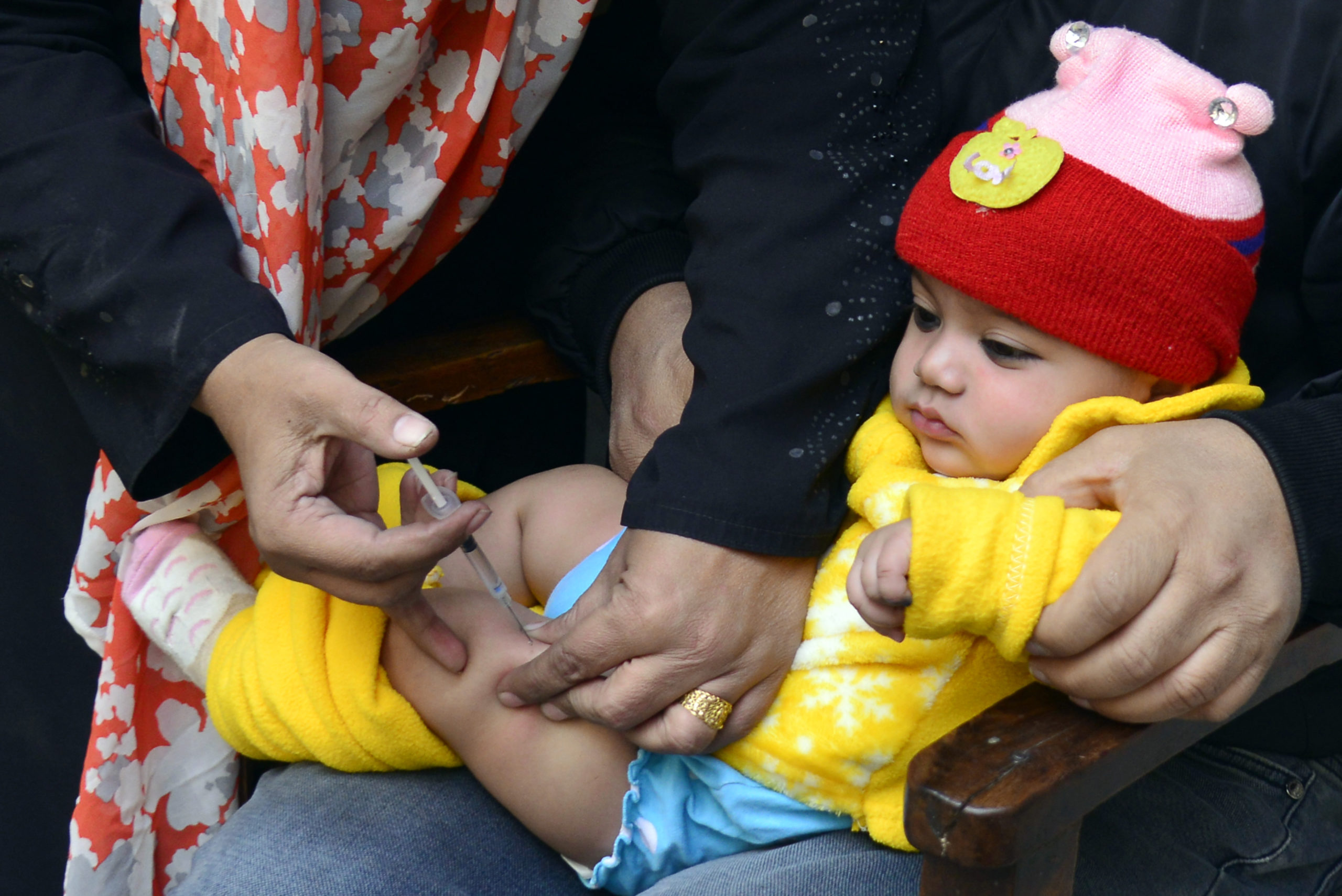
Therese and Léonie reminded me of this hard truth in a recent visit to a hospital in N’Djaména, Chad. One is a newborn girl and the other is a veteran of the campaign to eradicate a human disease for only the second time in history –polio-.
As a Gender Champion for Polio Eradication, I have committed to supporting the global initiative to eradicate polio and the women who work tirelessly to protect children from lifelong paralysis. During my visit to Chad, I had the honour of giving two drops of life-saving oral polio vaccine to two newborns.
Protected from a disease which once struck millions of children, Therese now has a better chance of a healthy life. Thanks to the Global Polio Eradication Initiative (GPEI) – spearheaded by Rotary International, national governments, the World Health Organization, UNICEF, CDC, the Bill & Melinda Gates Foundation and Gavi, the Vaccine Alliance – she is one of more than 2.5 billion children who have received the oral polio vaccine, as the global polio caseload has been reduced by 99% since 1988.
But as I looked at Therese, I also wished that she would have a better chance not just for health, but also for opportunities to prosper. I thought of a recent WHO report I had read – Delivered by Women, Led by Men – which observed that women make up 70% of the global health workforce but hold only 25% of senior roles – a situation that is no different for the polio program. Would Therese’s future reflect that disparity?

I found both frustration and hope in answer to my question when I listened to Ms. Léonie Ngaordoum, the woman responsible for the campaign which brought the vaccine to Therese.
Léonie is head of vaccine operations for Chad’s immunization programme. It is women like her who have brought us this far in the long fight against polio. It is women like her who have gone the extra mile to keep their countries safe when, in 2020, the polio programme faced unprecedented challenges in the face of a new pandemic- COVID-19.
Her journey to a senior public health position in Chad has been difficult. Driven to remote areas on dangerous roads to oversee vaccination campaigns, she has twice suffered accidents, one of which left her with severe spinal injuries. She has faced gender discrimination, countered vaccine misinformation, convinced vaccine sceptics, and stayed the course despite the severe strain of COVID-19, and struggling for respect and recognition in a male-dominated environment.
Today she has a clear vision to share: “I speak about vaccination as if it were a vocation…the program change needed to achieve polio eradication is to empower enough women.” Léonie’s experience highlights the necessity of increasing senior roles among women in the health workforce and involving them in policy decisions.
Women like her frequently operate in dangerous and conflict-affected areas, putting their own personal safety at risk – all in efforts to protect communities from deadly diseases. Women have a greater level of trust with other women and thus are able to enter households and have interactions with mothers and children necessary to deliver the polio vaccine. And this way they can also provide other services, such as health education, antenatal care, routine immunization, and maternal health.

The knowledge and skills gained by this workforce are already being deployed against COVID-19, in surveillance, contact tracing, and raising public awareness. Indeed, more than 50 percent of the time spent by GPEI health workers is already dedicated to diseases and threats beyond polio. It’s clear that the future of public health is inextricably linked to the status of women. Their heroic actions provide nothing less than a blueprint for the future of disease prevention. The Resolution on “Women, girls and the response to COVID-19”, adopted last year by the UN General Assembly, should play a key role when addressing these challenges and the specific needs of women and girls in conflict situations.
The centrality of women to the success of public health projects has for too long gone unrecognised, and must be formalized. That is why today, on International Women’s Day, we must pay tribute to the tremendous contribution of women like Léonie around the world in protecting their communities from deadly diseases such as polio. But at the same time, thinking of the world in which Therese will come of age, we need to commit to empower every woman and girl. It will not only make for a more just world – but a healthier one too.



